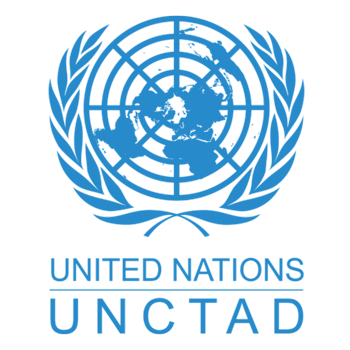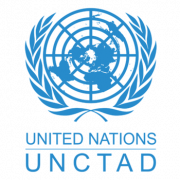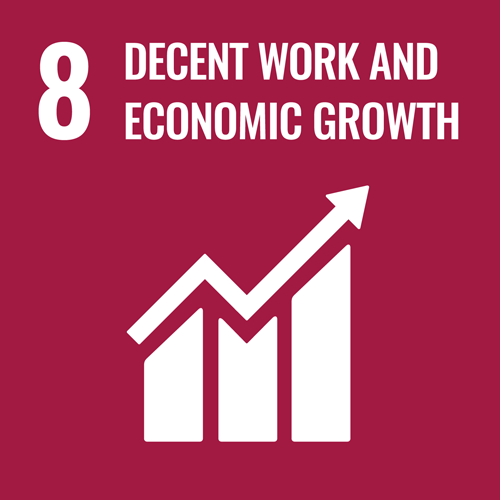
Globalization, including a phenomenal expansion of trade, has helped lift millions out of poverty. But not nearly enough people have benefited. And tremendous challenges remain.
We support developing countries to access the benefits of a globalized economy more fairly and effectively. And we help equip them to deal with the potential drawbacks of greater economic integration. To do this, we provide analysis, facilitate consensus-building, and offer technical assistance. This helps them to use trade, investment, finance, and technology as vehicles for inclusive and sustainable development.
Description of Activities on AI
Project 1: Industry 4.0 for inclusive development
The world is at the beginning of a new technological revolution based on industry 4.0 technologies such as artificial intelligence, robotics and the Internet of things. In addition, the impact of and response to the coronavirus disease (COVID-19) pandemic have accelerated the dissemination of such digital technologies. At its twenty-fourth session, in May 2021, the Commission on Science and Technology for Development (CSTD) selected “Industry 4.0 for inclusive development” as one of its two priority themes for the 2021–2022 intersessional period. This priority theme is relevant with regard to Sustainable Development Goal 9 on industry, innovation and infrastructure. To contribute to a better understanding of this theme and to assist CSTD in its deliberations at its twenty-fifth session, the CSTD secretariat has prepared this study based on relevant literature and country case studies contributed by CSTD members. The study builds in particular on the analysis and empirical evidence in two recent United Nations publications, namely Technology and Innovation Report 2021: Catching Technological Waves – Innovation with Equity , which examines how the development and diffusion of frontier technologies affect and are affected by socioeconomic inequalities; and Industrial Development Report 2020: Industrializing in the Digital Age of the United Nations Industrial Development Organization, Which focused on the emergence and diffusion of the advanced digital production technologies of industry 4.0 and their impact on the industrialization process in developing countries. Questions addressed in this study include: How can developing countries take advantage of the window of opportunity presented by industry 4.0 for technological upgrading and economic catch-up? What can Governments do to ensure that industry 4.0 does not increase inequality? What is the role of international cooperation in facilitating this process?
Project 2: Frontier technology adoption in developing countries: A measurement framework and proposed questionnaire
The report aims to present a measurement framework for collecting and interpreting information on the adoption of new and emerging technologies, including artificial intelligence, by business sector firms in developing countries. The report provides guidelines for both manufacturing and service sector firms. It does not cover non-market oriented public sector enterprises (health, education, public administration), although it does cover government-controlled or owned enterprises operating in market-oriented business sectors. Nor does the report address the specific conditions of agriculture – which in most developing countries is dominated by smallholders and would require a survey framework adapted to their specific conditions. It does, however, cover agro-industry (food products, beverages, and tobacco). The report recommends collecting information on the adoption and use of new technologies at the level of the establishment, local business unit or site as opposed to the level of the enterprise or enterprise group. In many cases, and especially for micro and small enterprises (MSEs), the establishment and enterprise levels will be the same. The report does not address adoption at the levels of sectors, regions, or nations though it may be possible in some cases to aggregate data to estimate adoption patterns at a higher level.
Project 3: Firm-level survey on the adoption of frontier technologies in Ghana
Frontier technologies are transforming production systems, economic and social interactions and determining competitiveness domestically and globally. Developing countries must make effort to harness frontier technologies for socio-economic and sustainable development. They need to put in place the necessary policies and strategies to ensure that frontier technologies, including Artificial Intelligence (AI), Internet of Things (IoT), big data, 3D printing, nanotechnology, robotics and others, are effectively adopted in the economy and society. However, policy formulation and strategizing for adoption of frontier technologies must be evidence-based. Yet, there is a lack of information on the patterns of adoption and use of frontier technologies in the productive sectors of the developing countries (Lorenz and Kraemer-Mbula, 2021).
In line with UNCTAD’s mandate to assist developing countries with technology and innovation policy formulation, a pilot study was conceptualized to provide data on the firm-level adoption of frontier technologies in Ghana. This survey was designed to be carried out also in South Africa and Tunisia. The overall goal of the firm-level survey is to gather data from firms on the adoption of frontier technologies in the productive sectors of the economy.
Project 4: Side event on “AI strategies for inclusive and sustainable development” at Twenty-fifth annual session United Nations Commission on Science and Technology for Development (CSTD), 29 March 2022
The objective of the side event was to discuss the formulation and implementation of national strategies for promoting the deployment of AI in productive sectors and the development of AI capabilities for inclusive and sustainable development. The side event will seek to address the following questions: How governments have approached the formulation of their national AI Strategies? How these strategies have promoted the development of capabilities in AI? How they seek to ensure that AI does not increase inequalities? What are the governance mechanisms adopted to implement the AI strategy? What is the role of international cooperation in supporting national AI strategies?


 Buy your pass
Buy your pass








